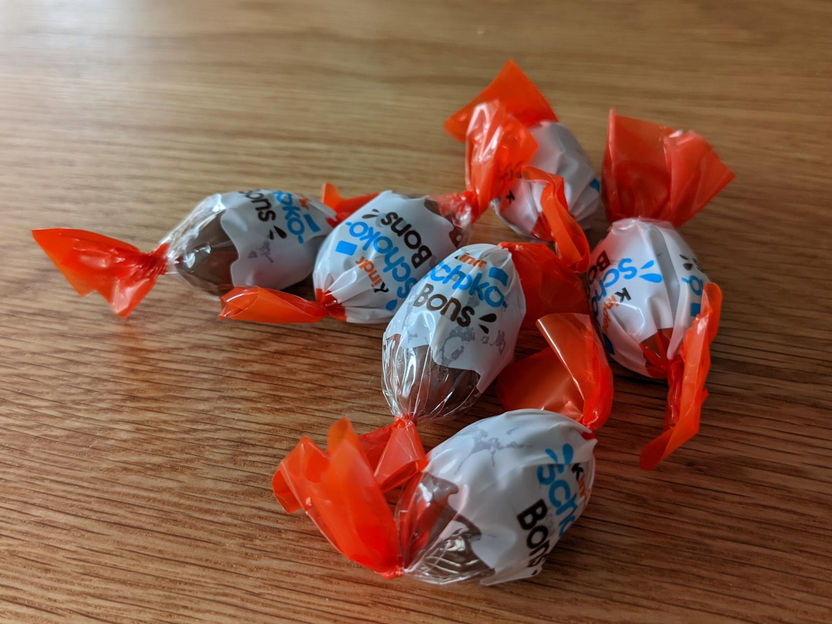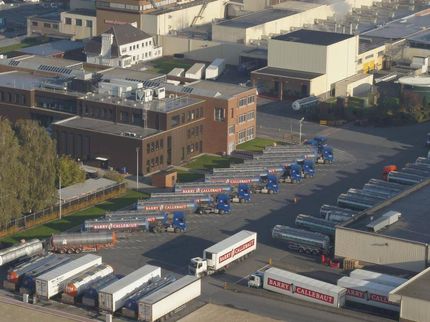Salmonella at Ferrero - problem known for months
It started with a suspicion and ended with a bang: Because of salmonella cases in several countries, Ferrero has to close a factory in Belgium for the time being - in the middle of the Easter business. In the process, an important question remains unanswered for the time being.

Ralph Schwaegerl
Things could hardly get worse for a confectionery manufacturer: Salmonella, factory closure - and all this a week before Easter. Ferrero has known about a problem in a Belgian factory for months. Now, however, the authorities there pulled the emergency brake. Why didn't the children's chocolate manufacturer act sooner?
As early as December 15, the company became aware of a salmonella case at the factory in Arlon, Belgium, according to a statement from Ferrero France in Luxembourg. According to the statement, salmonella was found there in a sieve at the outlet of two raw material tanks. The products made from them were then held back. The filter had been replaced and checks on unfinished and finished products had been increased, Ferrero said.
On Friday, the investigations by food authorities, which have since been launched, finally reached their preliminary climax. The confectionery giant must stop production at the factory in Belgium, which has been in the spotlight for days, for the time being. The supervisory authority Afsca announced to withdraw the production license for the factory as a result of investigations. Ferrero had not provided sufficient information in the investigation, the statement said. In the midst of the important Easter business, Ferrero must now recall all products from the factory, regardless of their production date.
According to the Afsca statement, this affects all Kinder Surprise, Kinder Mini Eggs, Kinder Surprise Maxi and Schoko-Bons manufactured in Arlon. Also affected by the recall is the Kinder Mix Easter Gift Bag product, which was offered in some German test markets. Afsca also asked all distributors to remove affected products from retail outlets. It said the Arlon plant would not be allowed to reopen until all food safety rules and requirements were met.
On Friday afternoon, Ferrero spoke out again, admitting mistakes in handling the recalls of some products. The Italian company remains vague about the reasons for the months-long gap between the announcement of the salmonella case in Arlon and the recalls in April: "internal inefficiencies" caused "delays in the recalls and in the exchange of information". As a result, investigations into the case were not carried out as quickly and efficiently as necessary, the statement said.
Since the beginning of the week, the company had recalled products from its children's candy line in quite a few countries after several salmonella illnesses became known that were linked to the products from the Arlon factory. The German market was also affected by the recalls in recent days.
The company had initially emphasized that the recalls were purely precautionary measures.
On Thursday, Ferrero said it had obtained new data through cooperation with food and health authorities in Europe that showed a match between salmonella cases reported in Europe and its own factory in Arlon.
Meanwhile, consumer organization Foodwatch strongly criticized the company. "If such a mistake happens, the population must be warned immediately," Andreas Winkler of Foodwatch said Friday. In his view, self-responsibility and self-checks by manufacturers are not sufficient, what is needed are "transparency obligations for authorities, so that cases like Ferrero have to be made public immediately."
Earlier, the EU food safety authority EFSA and the EU health authority ECDC had already started investigations. The two agencies had said on Wednesday there had been 105 confirmed cases of salmonella and 29 suspected cases, most of them in children under the age of ten. Certain chocolate products had been identified as a likely route of infection.
According to the consumer center, salmonella illness manifests itself within a few days of infection with diarrhea and abdominal pain. Sometimes vomiting and a slight fever can also occur. In healthy people, the symptoms usually subside after a few days. In certain cases, however, severe courses of the disease can occur, especially in infants, small children, the elderly and people with weakened immune systems. (dpa)
Note: This article has been translated using a computer system without human intervention. LUMITOS offers these automatic translations to present a wider range of current news. Since this article has been translated with automatic translation, it is possible that it contains errors in vocabulary, syntax or grammar. The original article in German can be found here.































































